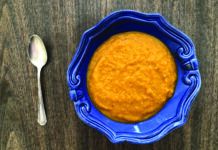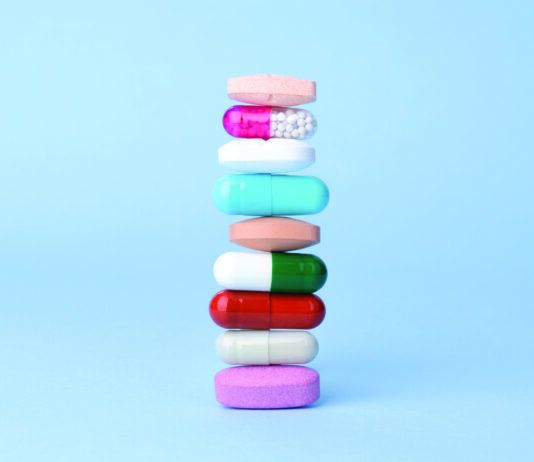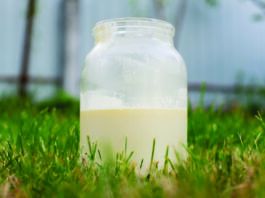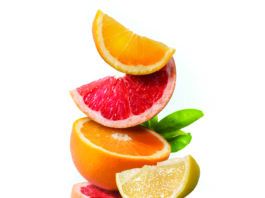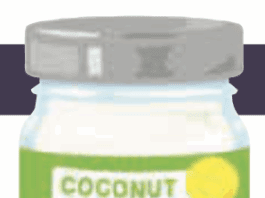Q. My physician tells me that I am pre-diabetic, so I am very careful...
A. Anastassios G. Pittas, MD, professor of medicine in the Division of Endocrinology, Diabetes & Metabolism at Tufts Medical Center, responds: The quick answer...
Q. Ive read conflicting reports on the effects of alcohol on bones. Assuming one...
A. Katherine L. Tucker, PhD, a professor at the University of Massachusetts-Lowell and adjunct professor at Tufts Friedman School, answers: It has long been...
Q. The vitamin D supplement I take also contains calcium carbonate, cellulose gel, maltodextrin,...
A. Bess Dawson-Hughes, MD, director of Tufts HNRCA Bone Metabolism Laboratory, answers: The amount of calcium present is very small and so not very consequential. The other ingredients have negligible nutritional value, are commonly used, and I know of no evidence that they are unsafe.…
Q. I am changing all my recipes from sugar to honey and pure maple...
A. Sugar is sugar is sugar, cautions Diane L. McKay, PhD, an assistant professor at Tufts Friedman School about making such a switch. Per tablespoon, granulated (table) sugar has no vitamins or minerals, and honey has slightly higher, but still negligible amounts, while the same amount of maple syrup actually has about 15% of the Daily Value (DV) for riboflavin and 30% of the DV for manganese. Honey and maple syrup also contain several different…
Q. Can olive oil be used in cooking, or should it be used only...
A. Alice H. Lichtenstein, director of Tufts HNRCA Cardiovascular Nutrition Laboratory, answers: To my knowledge Italians have been using olive oil for centuries in cooking. There is no reason why it could not be used for cooking. Theoretically, olive oil would be more stable than a more unsaturated oil.…
Q. We have been hearing about the benefits of lycopene. Is it true that...
Q. We have been hearing about the benefits of lycopene. Is it true that red and yellow tomatoes have different types of lycopene, and that the type in yellow tomatoes is more easily absorbed by the human body?…
Q. My mother has severe age-related macular degeneration (AMD) and it was recommended she...
A.Touted as the strongest natural antioxidant found to date and also promoted for anti-inflammatory benefits, astaxanthin is a naturally occurring plant pigment. Like many such compounds, its a type of carotenoid. When microalgae containing astaxanthin are eaten by salmon or shellfish, the compound turns their flesh pink; the same effect is seen in the feathers of flamingos who consume astaxanthin via algae. Supplement producers seeking to cash in on recent publicity for astaxanthin, including the…
Q. Im thinking about taking a vitamin A supplement, but am confused by the...
If youre eating a balanced diet and have no special health concerns, you probably dont need extra vitamin A of any kind. According to the Office of Dietary Supplements of the National Institutes of Health, Vitamin A is available in multivitamins and as a stand-alone supplement, often in the form of retinyl acetate or retinyl palmitate [preformed vitamin A].
Q. You continue to sing the praises of salmon as a source of omega-3....
Q. You continue to sing the praises of salmon as a source of omega-3. Im not a fan of salmon (or other fish, for that matter). How much omega-3 in capsule form should I take to approximate the benefit of one serving of salmon?
Q. You recently covered a new green tea study that focused on protecting brain...
A.Jeffrey Blumberg, PhD, director of Tufts HNRCA Antioxidants Research Laboratory, responds: It is not possible to determine the green tea cups/day equivalent in that particular study because the authors disclosed the dose only as 0.05% standardized green tea extract without describing the standard. However, two observational studies of green tea and cognitive performance, published in the American Journal of Clinical Nutrition in 2006 and 2008, identified those drinking two or more cups per day and…




